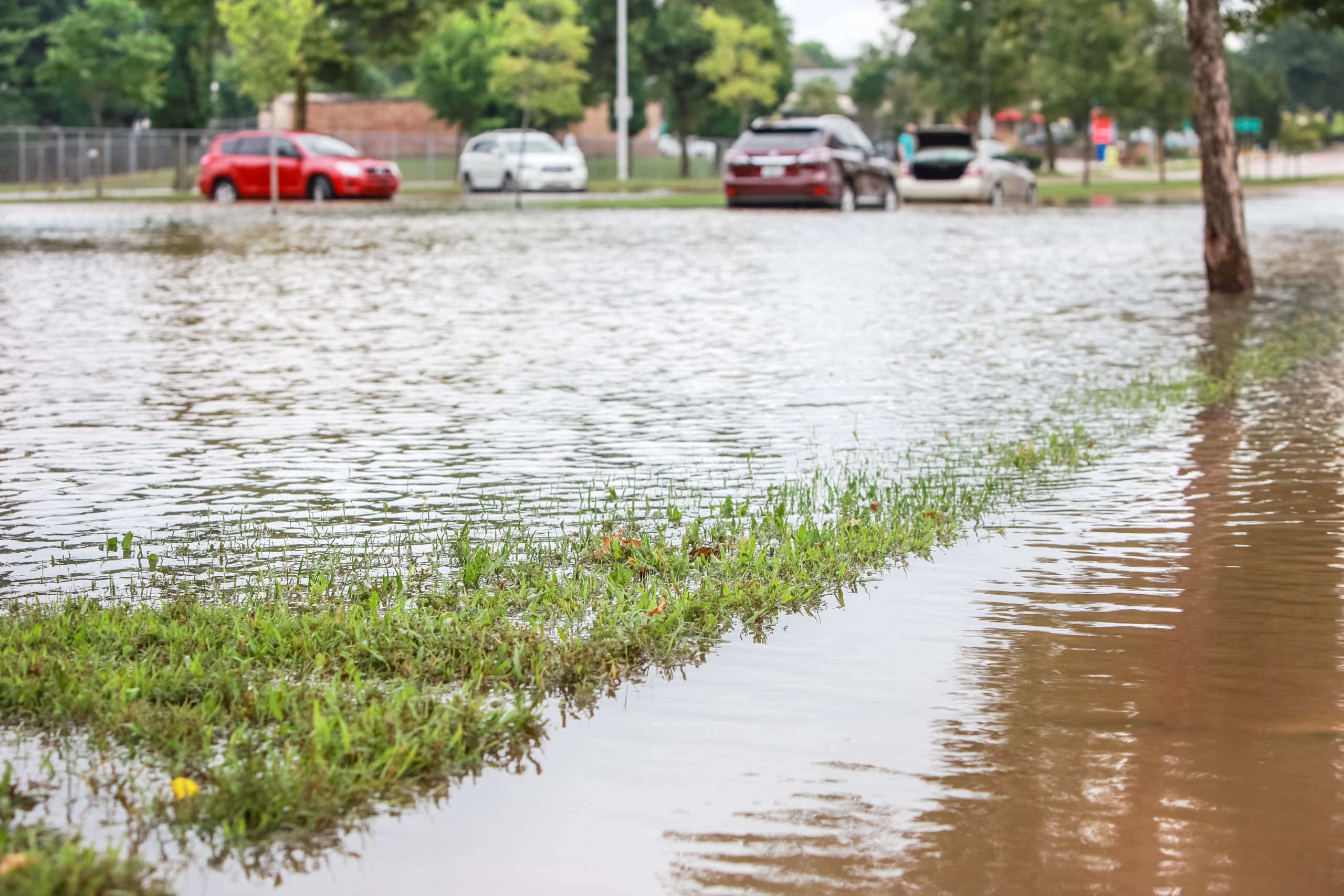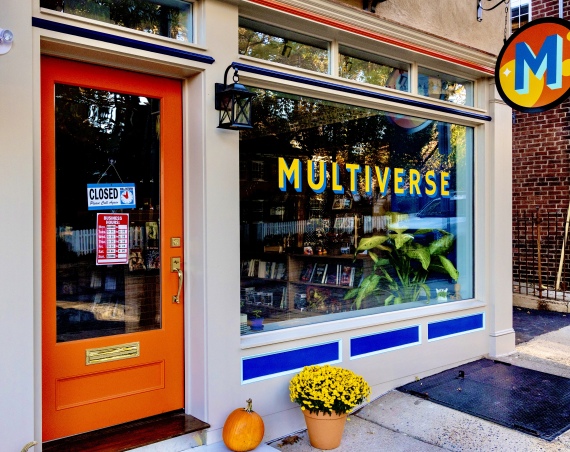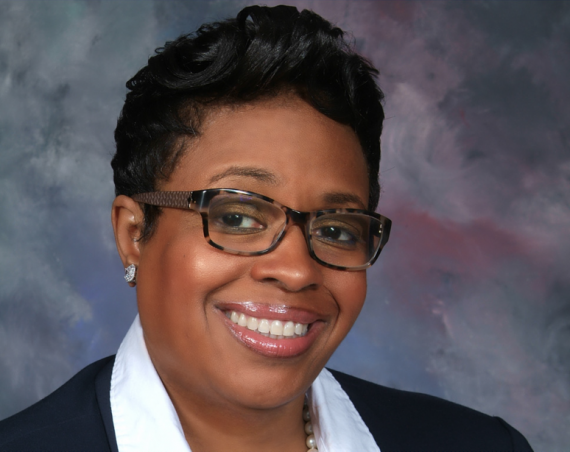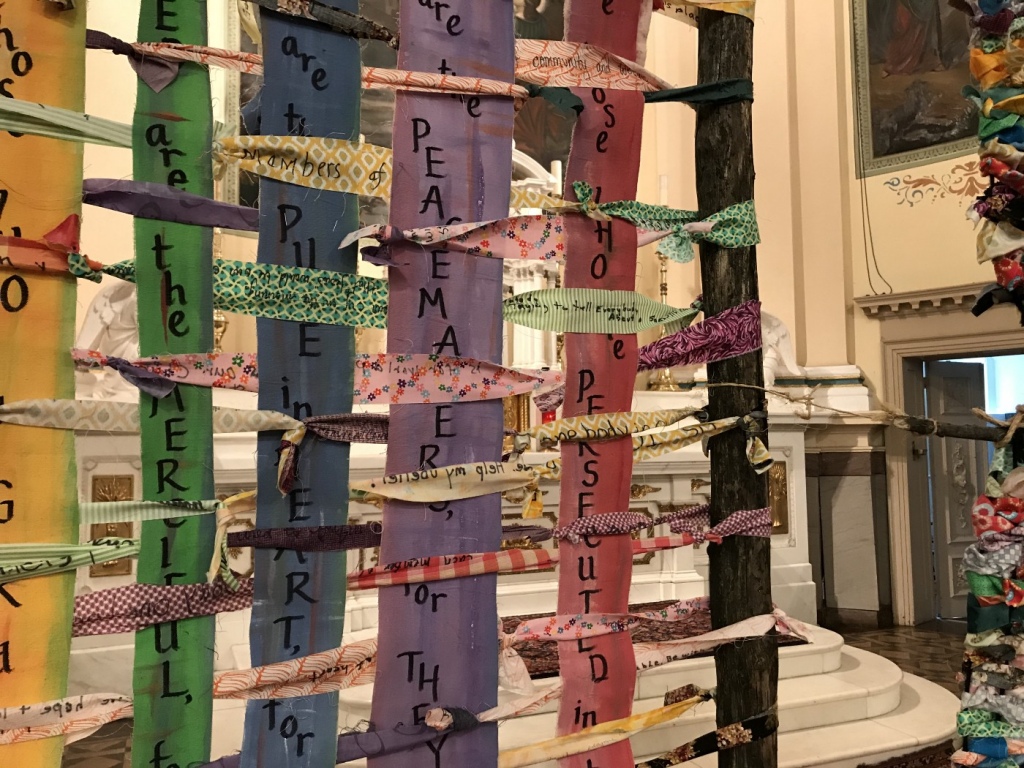
When Thalia Monteiro Parr first started frequenting St. Vincent de Paul Church in Germantown, her queer friends began asking her questions. “Why are you going to church?” they asked. “Don’t they hate you?”
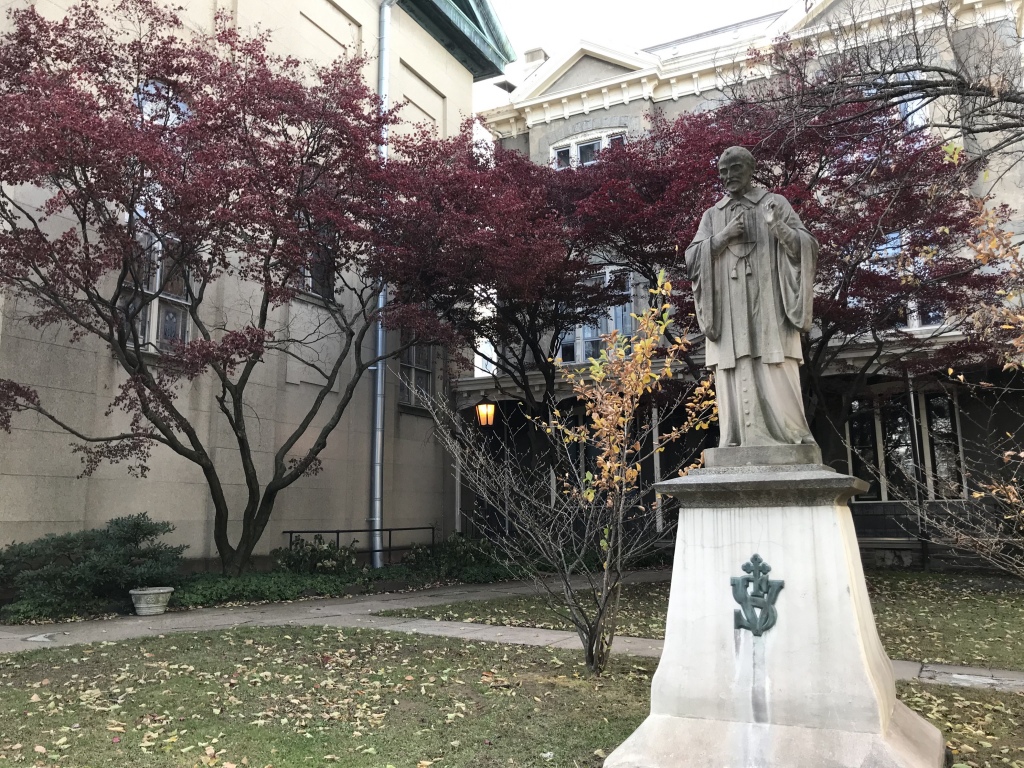
Parr, a member of the LGBTQ+ community, was baptized at St. Vincent last year in April, despite her friends’ apprehension. “At St. Vincent’s you’re not just ‘queer,’” she said. “It’s not your primary identity. You’re just a normal person.”
Parr isn’t alone. Many other members of the LGBTQ+ community find themselves balancing seemingly contradictory identities as they maintain their place in the world as both catholic and queer-identifying. In many ways, St. Vincent has emerged as a refuge for people like Parr.
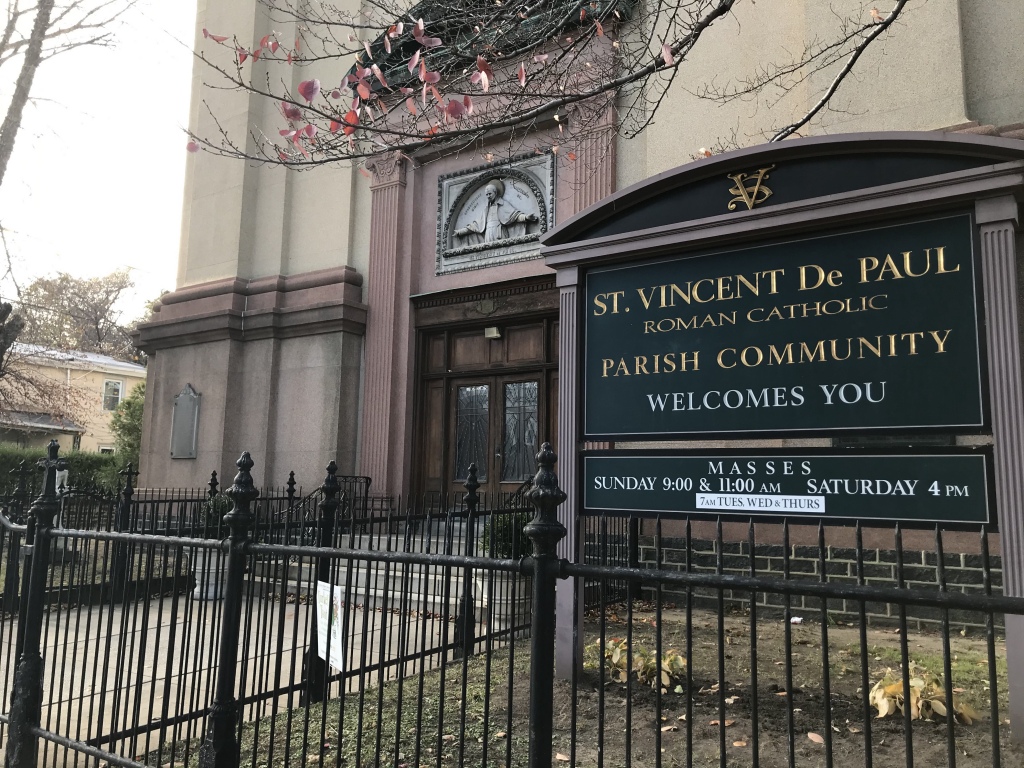
Established in 1851, St. Vincent is currently Germantown’s only Catholic Parish, and is frequently dubbed the “social justice parish.” Through community outreach events, like public lectures and movie screening geared toward teaching people about LGBTQ+ issues within religious communities, St. Vincent has been at the forefront of Catholic LGBTQ+ advocacy in both Germantown and throughout Philadelphia, as emphasized by both Parr and Father Sylvester Peterka, the pastor at St. Vincent.
Peterka maintained that he is not trying to make a political statement, referencing how Jesus acknowledged people on the margins of society and offered them support. Peterka’s goal is to encourage free dialogue and provide a “safe haven” for those shunned by society because their identity does not impact their discipleship, he said.
“Jesus preached love and understanding towards people who are labeled by society,” Peterka said, illustrating that St. Vincent seeks to further Christ’s message of love for all. “Some people don’t realize that this[homosexuality] is not a cognitive choice. It is how God created them.”
While St. Vincent strives to create an all-inclusive religious space, the position of the Archdiocese of Philadelphia cannot be ignored. In October last year, Charles Chaput, former Philadelphia Roman Catholic Archbishop went on record saying that “there is no such thing as LGBTQ Catholic,” as reported by the Catholic Herald.
However, Peterka said that he has not run into any issues with the Archdiocese. “I have not really experienced any hands-on powerplay by the Archdiocese. They haven’t sent us any letters or anything,” he said.
In 2013, Pope Francis addressed issues of bigotry toward queer-identifying people within the Catholic church by saying “who am I to judge,” as reported by BBC.
“That stance gives the Archdiocese a little less ability to be so prejudiced against members of the LGBTQ+ community,” Margo Weber, a volunteer clerk at St. Vincent, said.
While the Archdiocese does not permit St. Vincent to marry gay couples, some children of gay couples have been baptized at the parish. This is allowed largely because St. Vincent has order priests, who are not taught within the realm of the Archdiocese and are, therefore, more tolerant, whereas, Archdiocese priests are far more conservative, Weber explained.

While some like Parr and Weber believe that St. Vincent has achieved several milestones in LGBTQ advocacy, others are more skeptical because it still doesn’t perform marriages between gay couples. “I think it is somewhat questionable, especially now that gay marriage has been legalized,” said Meerabelle Jesuthasan, a researcher who has studied lesbian circles in Philadelphia. “ I understand why members of the LGBTQ community would still distrust an institution that has contributed to their marginalization.”
For Weber, the priests are a driving force behind St. Vincent’s success in being a diverse and inclusive parish. But even with tolerant priests, St. Vincent still deals with moments of bigotry.
Weber recalled a family who wanted to carry out a funeral service at St. Vincent, but when they saw the rainbow flag hanging from the front altar, they decided not to bury the relative there. The rainbow flag was hung to commemorate the 49 people who were killed during a shooting at a gay-friendly nightclub in Orlando in 2016.
Weber said that people should read more of the Bible than just the Old Testament to embrace the LGBTQ+ community within the Catholic church.
“The Old Testament is where it says, you know, Sodom and Gomorrah kind of issues,” Weber said. “Society changes and the world has evolved. If you’re a Christian, you should be believing in what Christ displayed, and his greatest commandment was loving one another.”
Another member, who is anonymous for safety reasons, of the Parrish Pastoral Council at St. Vincent’s identifies as bisexual. She moved to Germantown because she wanted her kids to grow up in an all-inclusive, gay-friendly church. “This church fosters an environment of learning and acceptance through creating a safe space for people who identify as queer,” she said.
She said that she didn’t feel comfortable coming out as gay at her old parish at St. Paul’s church in Pittsburgh, adding that St. Vincent allowed her to embrace a part of her identity that she had always thought was incompatible with her faith.
“What attracts this community of queer, religious people to the church is that we have queer representation on various church-wide committees,” the woman added, who is a part of the Young Adults Ministry and the Retreat Committee. “These people can then feel comfortable and accepted because they see themselves represented in these religious spaces.”
Parr added that the church’s brave discussions surrounding an issue that has historically been swept under the rug is what makes it a successful religious community.
“There is a vocal minority of American Christians who are violently homophobic,” said Parr. “They drown the voices of all of the other religious people who believe in peace.” She added that Peterka is a powerful speaker who often addresses relevant social issues like mass incarceration, racism, and homophobia.
“For me, it was very impactful to see someone talking about these topics from the pulpit,” said Parr, who noted that her conversion to Catholicism was aided by her attendance at mass and hearing the pastor spearhead discussions on taboo topics.
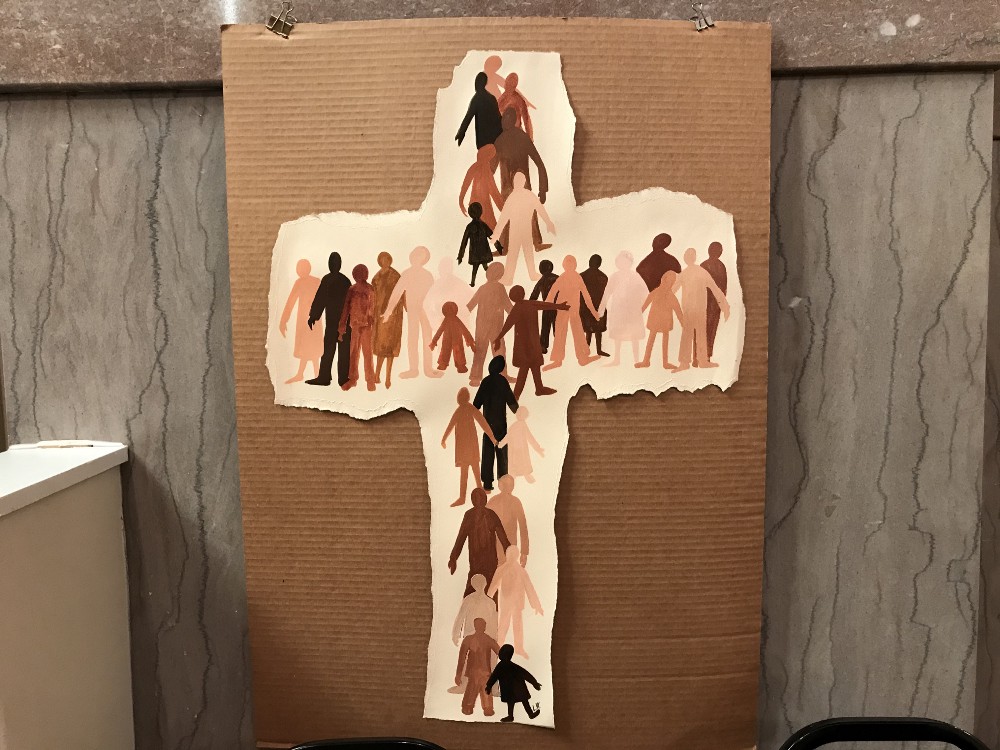
Echoing the pastor’s bold rhetoric during mass, St. Vincent hosts an annual event called Solidarity Sunday, where members of the LGBTQ+ community are invited to mass to talk about their experiences within the Catholic community. “Giving a voice to these people doesn’t only make them feel more accepted,” said the anonymous member. “It also allows members of the church, especially older people, the chance to learn more about an issue that they may not even be aware of.”

